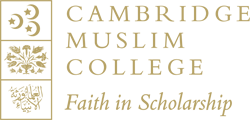Faculty & Staff
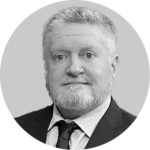
Professor Joel Hayward
Chief Executive
Professor Joel Hayward, the Chief Executive, is the author or editor of eighteen books and major monographs and over forty peer-reviewed articles, mainly in the fields of strategic studies, the Islamic ethics of war and conflict, the Sirah of the Holy Prophet, and both Islamic and western history. His recent books include Warfare in the Qur’an (2012), War is Deceit: An Analysis of a Contentious Hadith on the Morality of Military Deception (2017), Civilian Immunity in Foundational Islamic Strategic Thought: A Historical Enquiry (2019), and The Leadership of Muhammad: A Historical Reconstruction. The latter won the prestigious prize of “Best International Non-Fiction Book” at the 2021 Sharjah International Book Awards. His newest book is The Warrior Prophet: Muhammad and War (2022), which has received widespread praise from reviewers.
Professor Hayward is also active in the literary arts and has published three books of fiction and four collections of Islamic poetry.
He is currently writing a book on the diplomacy of the Prophet Muhammad ﷺ, based on the earliest Arabic sources, and a book for Muslim children on how to understand the nature of knowledge, both sacred and scientific.
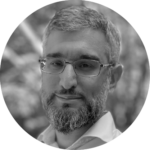
Dr Talal Al-Azem
Academic Director
As Academic Director of Cambridge Muslim College, Dr Talal Al-Azem heads the College’s academic programmes, leads in the development of curricula, and oversees research. He was educated at the University of Michigan and at Oxford, and studied the disciplines of Islamic learning in Syria and Turkey. Dr Al-Azem has served as fellow at the Oxford Centre for Islamic Studies and lecturer in the Faculties of Theology and Religion and of Oriental Studies at the University of Oxford. His research focuses on Muslim moral theology, law, and education.

Dr Abdallah Rothman
Head of Islamic Psychology
Dr Abdallah Rothman holds an MA in Psychology from Antioch University and a PhD in Psychology from Kingston University London. His clinical practice as well as his academic research focus on approaching counselling and psychotherapy from within an Islamic paradigm and establishing an indigenous Islamic theoretical orientation to human psychology that is grounded in the knowledge of the soul from the Islamic tradition. In addition to his academic training he has studied privately with a number of traditional Islamic scholars throughout the Muslim world. Dr Abdallah is visiting professor of psychology at Zaim University Istanbul, International Islamic University Islamabad, and Al-Neelain University Khartoum and co-founder, along with Professor Malik Badri, of the International Association of Islamic Psychology.
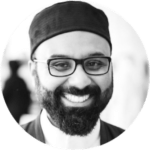
Dr Salman Younas
Lecturer in Islamic Studies
Dr Salman Younas’ research focuses on Islamic law in the classical and modern periods. Dr Younas graduated from Stony Brook University with a degree in Political Science and Religious Studies. After completing his undergraduate degree, he moved to the Middle East where he spent half a decade studying Arabic and the traditional Islamic sciences. In 2013, Dr Younas completed his MA in Oriental Studies from the University of Oxford with honours. He then went on to complete a DPhil in Oriental Studies from the University of Oxford in 2018. He was previously a researcher at the Oxford Department of International Development and the Hamad bin Jassim Fellow at the Oxford Centre for Islamic Studies.

Dr Ramon Harvey
Lecturer in Islamic Studies
Dr Ramon Harvey lectures in Islamic theology at Cambridge Muslim College. He undertook his postgraduate studies at SOAS, University of London, and also holds an ʿalimiyya qualification. His publications include monographs and articles in both Islamic theology and Qur’anic studies. Currently, his research focuses on kalām in early Māturīdism and on constructive Islamic theology, especially in conversation with Christian theology, analytic philosophy and phenomenology. He is Series Editor of Edinburgh Studies in Islamic Scripture and Theology, which is published by Edinburgh University Press.
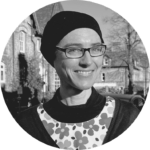
Dr Claire Gallien
Senior Research Fellow
Professor Claire Gallien is Senior Research Fellow at Cambridge Muslim College. She received her PhD in English and Comparative Literatures and Studies at the Sorbonne. She also has training in Arabic and Islamic Studies from the Inalco and abroad (Cairo, Damascus, Sanaa, Birzeit, Beirut, and Tunis). Prior to joining Cambridge Muslim College, she was research and teaching fellow at the Zentrum für Islamische Theologie (Tübingen University, Germany) and has had more than ten years experience of teaching and research at the University of Montpellier and the CNRS (France). Her research interests are in Islamic epistemology and Islamic intellectual and religious history, Islamic literature and Sufism, British early-modern orientalism, with a focus on the constitution of Islamic manuscript libraries in early-modern Britain, decolonial thinking and translation. She has studied with Muslim scholars in Egypt, Turkey and the UK.
Current Research Fellows
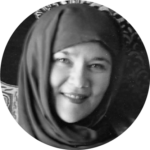
Dr Razia Sultanova
Dr Razia Sultanova has studied and worked at both the Tashkent and Moscow State Conservatories and worked at the Russian Institute of Art Studies in Moscow. In 1994 she moved to reside in the UK and work at the University of London and since 2008 has worked at the University of Cambridge. She is the author of four books and five edited volumes (in Russian, French and English) on Central Asian gender, religion and music. She has been a visiting Professor at Moscow State Conservatory (Russia), at the Kazakh National University of Arts (Nur-Sultan), and at the Khoja Ahmet Yassawi Kazakh-Turkish University (Kazakhstan/Turkey).
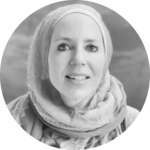
Dr. Claire Alkouatli
Dr. Claire Alkouatli holds a PhD in Human Development, Learning, and Culture from the University of British Columbia, Canada, with a methodological specialization, whereby she studied Muslim–Canadian educators’ pedagogies in teaching Islam. Claire is an educational consultant and a lecturer at the University of South Australia’s Center for Islamic Thought and Education. Recent projects include leading a multi-site design experiment on imaginative play and Seera storytelling, inquiring into female leadership in Islamic schools in Australia and New Zealand, and studying wellbeing amongst Saudi women academic leaders. Claire’s research at CMC revolves around conceptions of human development across the human lifespan, asking: what does holistic self, social, and spiritual development look like within an Islamic worldview? What are its premises, principles, and leading activities as mechanisms of transformation? How do adults help foster youth development in different Muslim cultural contexts? How do Muslim youth want to be supported towards thriving? With focus on culture, social relationships, and pedagogies, Claire’s research explores imagination, dialogue, reflection, inquiry, challenge, risk, and adventure in teaching, learning, and developing.
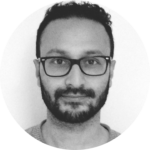
Dr Safaruk Chowdhury
Dr Safaruk Chowdhury studied Philosophy at Kings College London completing it with the accompanying Associate of Kings College (AKC) award. He then travelled to Cairo studying the traditional Islamic Studies curricula at al-Azhar University. He returned to the UK to complete His MA at the School of Oriental and African studies with distinction. His doctoral dissertation was on the eminent Sufi hagiographer and theoretician Abu ‘Abd al-Rahman al-Sulami (d. 412/1021) published as A Sufi Apologist of Nishapur: The Life and Thought of Abu ‘Abd al-Rahman al-Sulami (Sheffield: Equinox Publishing, 2019). Saf’s research interests in addition to Sufism at the moment are in paraconsistent logic, metaphysics, ethics and epistemology with keen interest in how these subjects were all utilised for clarifying and explicating Islamic theological doctrine – especially within kalam theology. His forthcoming book is entitled Islamic Theology and the Problem of Evil (New York and Cairo: AUC Press) which is the first work in Islamic studies to treat the topic within the analytic theology approach. Dr Safaruk Chowdhury is currently working on Beyond Foundationalism: New Horizons in Muslim Analytic Theology, a major research project on Islamic epistemology funded by the John Templeton Foundation. Further details can be found on the project’s page here.
Previous Research Fellows
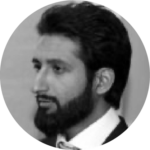
Dr Yaqub Chaudhary
Dr Yaqub Chaudhary holds a PhD in Physics from Imperial College London, where he worked on the Physics of Plastic Electronic Materials and their potential use in future types of lasers. Prior to this he studied Electronic Engineering at the same institution. As Research Fellow in Science and Religion he is reprising his long-standing interest in Artificial Intelligence and his current research project will consider recent developments in the fields of AI, cognitive science and neuroscience in connection with Islamic conceptions of the mind, intelligence, human reasoning, cognition, knowledge, the nature of perception and consciousness.
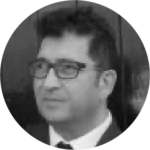
Dr Asim Islam
Dr Asim Islam holds a doctorate in Pure Mathematics and is a Research Fellow in Science and Religion researching mathematical and physical sciences and their deeper interpretation in relation to human perception and self awareness. He was awarded a PhD in Mathematics from Royal Holloway University of London and has published part of his thesis on Analytic Number Theory in the Journal of the London Mathematical Society. He is also undertaking studies at the Department of Theoretical Physics at Imperial College London in Quantum Field Theory and Fundamental Forces. His first degree was in medicine from the University of Cambridge and he is a qualified medical doctor.
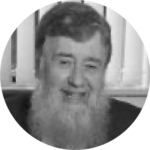
Professor John Mayberry
Professor John Mayberry is a Consultant Physician & Professor of Gastroenterology at the University of Leicester. During his time at CMC he looked into hospital chaplaincy and the role of supplicatory and intercessory prayer in patient care. He also organised a seminar on hijama and the wider relationship between traditional and modern medicine which was attended by health professionals and interested parties.
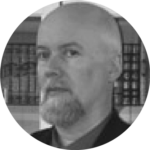
Dr Dawud Bone
Dr Dāwūd Bone is researching aspects of education including opportunities to extend the work developed at the College into schools. He will be addressing curriculum issues and aspects of Islamic thought relating to teaching and school management. His doctorate from The University of Warwick focused on multi-faith religious education in British Darul ʿUlūms, research he then applied to Muslim school leadership as an award-winning headteacher of Muslim schools in London and Bristol. He has also engaged extensively in Christian-Muslim relations and was previously a Director of the Centre for the Study of Muslim-Jewish Relations at the Woolf Institute in Cambridge.

Dr Harith Bin Ramli
Dr Harith Bin Ramli works on the history of early Islamic thought, focusing on the formation of Sufism and Islamic theology. He received his BA in Arabic and Middle Eastern Studies from the University of Durham in 2004, and MPhil in Medieval Arabic Thought from the University of Oxford in 2006. He then continued as a doctoral student at Oxford, receiving a DPhil in 2012 for his thesis on epistemology and theology in the fourth/tenth century text Qūt al-qulūb of Abū Ṭālib al-Makkī. He has taught courses on Sufism and Islamic theology at SOAS and the University of Nottingham, where he was a teaching fellow from 2013 to 2014.
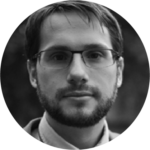
Dr Samer Dajani
Dr. Samer Dajani specialises in Islamic legal theory, comparative fiqh, and hadith sciences. He has a BA in Arab & Islamic Civilizations from the American University in Cairo, and an MA and PhD in Islamic Studies from the School of Oriental and African Studies (University of London). He also received an Alimiyya degree from al-Salam Institute (London) and recently completed a postgraduate degree in International Business from Birkbeck (University of London). He was a Research Fellow at CMC in 2015-16 after which he taught as a lecturer at the Muslim College, London. He is the author of Sufis and Sharia: The Forgotten School of Mercy (Edinburgh University Press, 2023)

Dr Ramon Harvey
Dr Ramon (Ibrahim) Harvey studies the Islamic scriptural sources and classical disciplines with a focus on Qur’anic interpretation and the sharī’ah. He received his MA and then PhD in Islamic Studies from SOAS, University of London, completing a thesis on societal justice in the Qur’an. Alongside his academic training, he has spent a number of years studying with traditionally trained Islamic scholars in the UK and has attended an intensive programme at Al-Azhar in Cairo. He has previously worked as a Senior Teaching Fellow at SOAS lecturing in Qur’an and Hadith, as well as writing biographical entries of early Islamic figures for a forthcoming collection. During the year at Cambridge Muslim College, he worked on revising his thesis into a monograph which was published as The Qur’an and the Just Society (Edinburgh University Press, 2017) and has published journal articles including “The Preferences of al-Ki’sa’i (d.189/805): Grammar and Meaning in a Canonical Reading of the Qur’an” (International Journal for the Semiotics of the Law 29, no. 2, 2016: 313-332) and “The Legal Epistemology of Qur’anic Variants: The Readings of Ibn Mas’ud in Kufan Fiqh and the Hanafi Madhab” (Journal of Qur’anic Studies 19, no. 1, 2017: 72-101. He continues his research in Qur’anic studies, early Islamic legal theory and Māturīdī theology and is currently Aziz Foundation Lecturer at Ebrahim College.
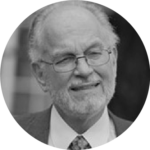
Dr Michael Berdine
Dr Michael (Muhammad As’ad) Berdine was CMC’s first Principal, leading the College during its formative years, 2009-2013, then became a Research Fellow at CMC from 2013-14. He is an historian specialising in the history of the British Empire in the Middle East and South Asia. He received his BA and MA in History at the University of Portland, before receiving his MA in Near Eastern Studies and PhD from the University of Arizona. He has extensive experience teaching Middle East, Islamic and World history, as well as in community outreach, especially inter-faith initiatives. His book, The Accidental Tourist, Wilfrid Scawen Blunt and the British Invasion of Egypt in 1882, was published by Routledge Press in 2005. His new book, The Re-Drawing of the Middle East: Sir Mark Sykes, Imperialism and the Sykes-Picot Agreement, published by I.B. Tauris, is listed as No.1 on Book Authority (USA) list of “12 Best New Middle East History Books to Read in 2018”.
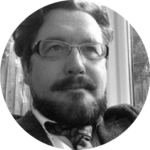
Dr Timothy Saunders
Dr Timothy Saunders has a professional and academic track record as a teacher and headmaster with 21 years’experience in schools and a special interest in academic leadership, pastoral care and team development overlapping the state and independent school sectors. He is currently pioneering an integrated approach to the Inner Curriculum to enable teachers to enhance subject learning by infusing Spiritual, Moral, Cultural and Mental development into every lesson. He is interested in school leadership as a form of pastoral ministry, which was the subject of his doctoral thesis – he has a BA in Theology and PhD in School Leadership. His website is islamicrenaissanceproject.

Shaykh Abdur-Rahman Mangera
Shaykh Abdur-Rahman Mangera was a Research Fellow at CMC for the academic year 2013-14. He earned a BA in Islamic Studies from the University of Johannesburg, and graduated from Darul Uloom in Bury, England, then specialized in legal judgment (iftā’) at Mazahir ‘Ulum Saharanpur, India. This was followed by a Masters and PhD in Islamic Studies from SOAS (University of London). He has written Fiqh al-Imam, co-authored Reflections of Pearls, translated Hasan al-Basri’s Prayers for Forgiveness, Abu Hanifa’s Al-Fiqh al-Akbar, Provisions for the Seekers, Salat & Salam: In Praise of Allah’s Most Beloved, and has edited Imam Ghazali’s Beginning of Guidance and Shaykh ‘Abdullah Gangohi’s commentary on Ibn ‘Ata’illah al-Iskandari’s Hikam. He continues to work on scholarly publications through White Thread Press (www.whitethreadpress.com) including A Commentary of Tahawi’s Creed Based on the Classical Maturidi Commentaries, which is expected in 2018.

Dr Joel Hayward
Dr Joel Hayward (2012-13) was at the Cambridge Muslim College for only a short time before he was offered the post of Director, Institute of International and Civil Security, and Chair of the Department of Humanities and Social Sciences, at Khalifa University in Abu Dhabi. While at the College, Dr Hayward worked on the Islamic ethics of war.
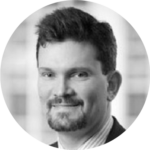
Dr Matthew L N Wilkinson
Dr Matthew L N Wilkinson (2012-13) published three journal papers on the application of critical realist theory to improve the representation of Islam in history and RE curricula in UK schools. These were Introducing Islamic Critical Realism (Journal of Critical Realism, 12 (4), 419-442), Helping Muslim Boys Succeed: The Case for History Education (The Curriculum Journal, 25 (3), 396-431) and The Concept of the Absent Curriculum: The Case of the Muslim Contribution and the English National Curriculum for History (Journal of Curriculum Studies, 1-22). This work became the basis of his book, A Fresh Look at Islam in a Multi-faith World: A Philosophy For Success Through Education which was awarded the Cheryl Frank Memorial Prize 2014 for the most creative and innovative work of critical realist philosophy. He is currently Research Fellow in Islam in Education and Law at the Centre of Islamic Studies, SOAS, University of London and Director of Curriculum for Cohesion.
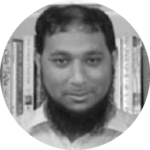
Dr Mansur Ali
Dr Mansur Ali (2011-12) spent his appointment working on two different areas of interest: Islamic practical theology and Hanafi fiqh. He co-authored a book on Muslim chaplaincy (Understanding Muslim Chaplaincy, Ashgate Publishers, 2013) with Dr Sophie Gilliat-Ray (Cardiff University) and Professor Stephen Pattison (Birmingham University). He has edited a complete translation of Qawa’id fi Ulum al-Hadith (Underlying Principles of Hadith, Turath Publishing, 2013) by Maulana Zafar Ahmad Uthmani. He also worked on mapping the trajectory of Hanafi fiqh in history and delivered a number of papers at academic conferences and seminars. Dr Mansur is a Senior Lecturer in Islamic Studies at the University of Cardiff.
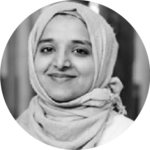
Dr Fozia Bora
Dr Fozia Bora (2011-12) has published three articles from her doctoral thesis. She lectured at Cambridge University’s Divinity School, on ‘Madrasas in the Medieval Near East: Religious Scholarship and Political Subversion’, addressed the CMC students on ‘A History of Arabic Historiography’, and delivered a lecture on “Natural Selection: Fatimid Voices in Mamluk Chronicles” at a conference at the University of Ghent, Belgium. She also authored “A Mamluk Historian’s Holograph. Messages from a Musawwada of Ta’rikh” (Journal of Islamic Manuscripts, Volume 3, Number 2, 2012). Dr Fozia was subsequently appointed a Teaching Fellow in Middle Eastern History at the University of Leeds. She has since won the Royal Asiatic Society’s Staunton Prize for her article on Salah al-Din entitled, “Did Salah al-Din Destroy the Fatimids’ Books? An Historiographical Enquiry” (Journal of the Royal Asiatic Society, January 2015).
OTHER LANGUAGES
